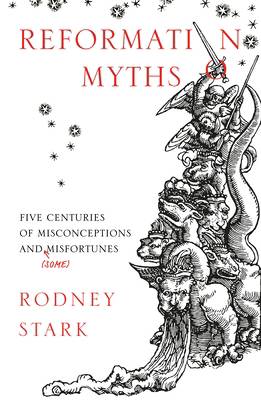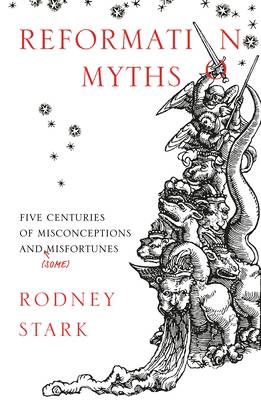
- Afhalen na 1 uur in een winkel met voorraad
- Gratis thuislevering in België vanaf € 30
- Ruim aanbod met 7 miljoen producten
- Afhalen na 1 uur in een winkel met voorraad
- Gratis thuislevering in België vanaf € 30
- Ruim aanbod met 7 miljoen producten
Zoeken
Reformation Myths
Five Centuries Of Misconceptions And (Some) Misfortunes
Rodney Stark
Paperback | Engels
€ 15,45
+ 30 punten
Omschrijving
What has the Reformation ever done for us? A lot less than you might think, as Rodney Stark shows in this enlightening and entertaining antidote to recent books about the rise of Protestantism and its legacy. 'Rodney Stark takes no prisoners as he charges through five hundred years of history, upsetting apple carts left and right. Almost everything you thought you knew about the Reformation turns out to be a false narrative. . . In future, anyone who makes sweeping claims about the benefits of Protestantism ought to check their assumptions against Stark's research first.' Clifford Longley, author and journalist 'Stark brings the insights of a distinguished sociologist of religion to bear on a range of inherited assumptions about the impact of the Reformation . . . The result makes for salutary reading in this year of commemoration and (not always justified) celebration.' Peter Marshall, Professor of History, University of Warwick 'Stark changed the way we think about the early Church and this book may change the way you think about Protestantism . . . Reformation Myths cuts through pious certainties and challenges us to think again about our cultural history.' Linda Woodhead MBE DD, Professor of Sociology of Religion, Lancaster University
Specificaties
Betrokkenen
- Auteur(s):
- Uitgeverij:
Inhoud
- Aantal bladzijden:
- 160
- Taal:
- Engels
Eigenschappen
- Productcode (EAN):
- 9780281078271
- Verschijningsdatum:
- 17/08/2017
- Uitvoering:
- Paperback
- Formaat:
- Trade paperback (VS)
- Afmetingen:
- 130 mm x 196 mm
- Gewicht:
- 226 g

Alleen bij Standaard Boekhandel
+ 30 punten op je klantenkaart van Standaard Boekhandel
Beoordelingen
We publiceren alleen reviews die voldoen aan de voorwaarden voor reviews. Bekijk onze voorwaarden voor reviews.











